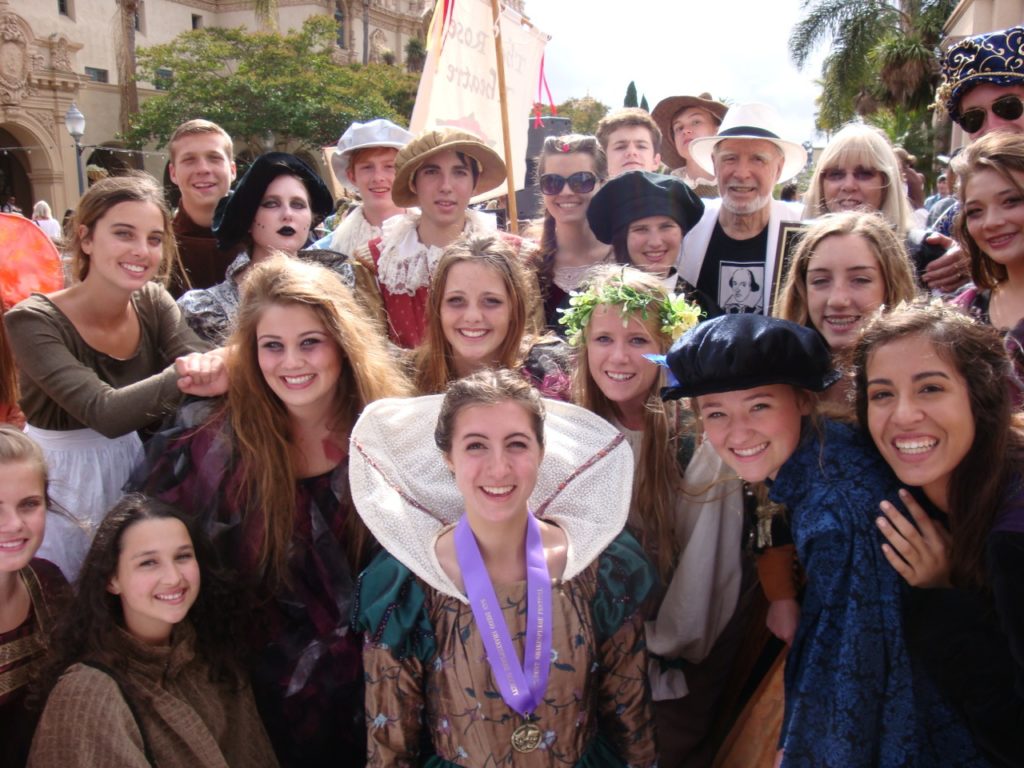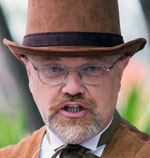
By Eric George Tauber

SAN DIEGO — Theatre critics are sometimes called upon to judge talent shows. This year, I was tapped to judge the Student Shakespeare Festival sponsored by the San Diego Shakespeare Society. So last Saturday morning, I played hooky from shul and headed out to Balboa Park. Sorry, Rabbi.
The society was founded in 2000 by Alex Sandie, an immigrant from Scotland and great lover of art and literature. He began this festival thirteen years ago with a group of local drama teachers and teaching artists. His daughter, Lisa Sandie is now carrying the torch as her belovéd father is in failing health.
At the risk of sounding curmudgeonly, I hope these kids realize how very fortunate they are. When I was in high school, my English Lit teacher was also the football coach and there was no mistaking his priorities. Even our drama teacher felt that Shakespeare was “too ambitious for high school.” It wasn’t until university that I had a professor who clearly knew his way around the First Folio and I became infected by his passion.
Costumes were a mix of period and modern dress, sometimes on the same actors as doublets and gowns were worn with Skechers. And there were the usual foibles you’d expect from kids such as mispronounced words, rushed lines and forgotten cues. When one little boy went up on his lines, his cohorts just stared at him blankly, unable to go on until his line was said.
There were more than a few girls playing male roles as there are always more girls than boys in drama class. But those class-clown boys wouldn’t dream of being anywhere else, finally finding an outlet where their antics and angst are rewarded instead of punished. And hey, what a great way to meet girls.
There were also some bold choices such as blending modern rock-n-roll tunes into Romeo & Juliet -highlighting its timeless universality- and Launcelot Gobbo, Shylock’s less-than-stellar servant in Merchant of Venice, arguing with his conscience and the fiend played by twin brothers.
A quartet performing the murder scene from Othello needed some way to set the Moor apart as “the other.” All fair skinned, they made him deaf, speaking and signing their lines in ASL (American Sign Language), shining a spotlight on his isolation and forcing us to confront our own discomfort with the disabled.
Ten-year-old Catalina Zelles was a bright little star with a brilliant personality. Already a triple threat, she sang, danced and acted her way through multiple presentations. My favorite moment was a little save handled like a pro.
Nerissa. There is the Neopolitan Prince.
Portia. Didn’t we already talk about him?
Nerissa. Oh, yeah. Sorry. Um… how about the County Palatine….
And the show went on.
Childish foibles and all, my spirits were lifted by the overflowing cup of youthful energy. These kids have plunged into a sea of words, experiencing great literature in rich, colorful lessons. Years from now, when they’ve gone on to various careers, they will recall with affection poetic lines in iambic pentameter. As keynote speaker Richard Lederer pointed out, the iamb is the rhythm of the heart. And their hearts will surely quicken with joy as they remember these days when literature came alive because they brought it to life.
*
Tauber is a freelance writer specializing in coverage of the arts. he may be contacted via eric.tauber@sdjewishworld.com
Brings back memories of high school drama when I was attempting to do the “Out damn spot” monologue. Words were difficult to understand let alone memorize and yet some how, I got through it.